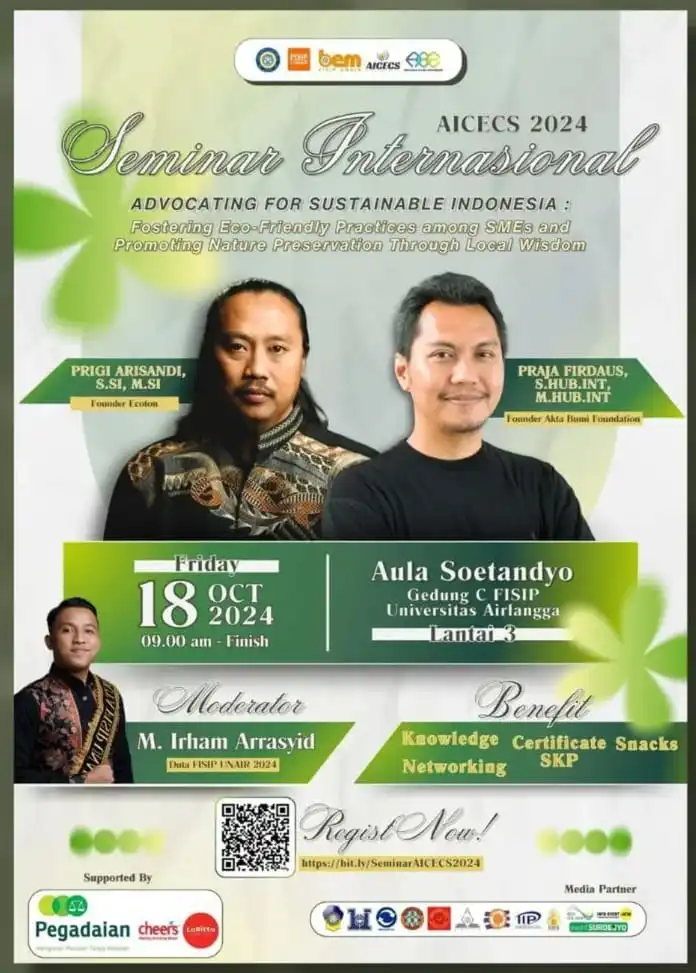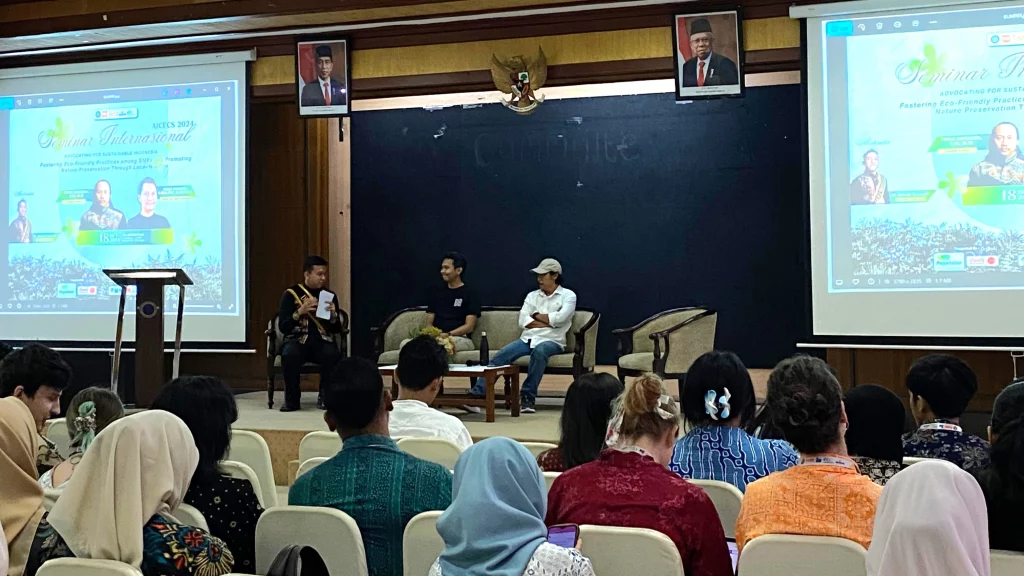UNAIR NEWS – The Ministry of Foreign Affairs of the Student Executive Body (BEM) of Faculty of Social and Political Sciences (FISIP) hosted an international seminar on Friday, October 18, 2024. Themed “Advocating for Sustainable Indonesia: Fostering Eco-Friendly Practices among SMEs and Promoting Nature Preservation Through Local Wisdom,” the seminar was part of the 2024 Airlangga International Cultural and Economic Community Service (AICECS) program.
The event featured speakers Prigi Arisandi, S.Si., M.Si., Founder of Ecological Observation and Wetland Conservations (Ecoton), and Praja Firdaus, S.Hub.Int., M.Hub.Int., Founder of the Akta Bumi Foundation. Held at Soetandyo Hall, Building C, FISIP, UNAIR Dharmawangsa-B Campus, the seminar proceeded smoothly in a productive and engaging manner.
Sustainable Indonesia
In the first session, Firdaus introduced the concept of “Sustainable Indonesia,” emphasizing the use of local wisdom to promote environmental preservation. He highlighted the traditional use of banana leaves as food wrappers in rural areas, suggesting that today’s society can adopt similar practices to maintain ecological balance.
Firdaus also pointed out that sustainable living doesn’t have to be costly. “People may admire you if you own an electric car, the latest gadgets, or designer clothes, but it’s often the prestige that’s expensive, not the lifestyle itself. We need to shift our mindset and realize that sustainable living can actually be affordable,” he stated.

Small actions, big impact
In the following session, Arisandi discussed the harmful effects of microplastics on human health. His organization, Ecoton, focuses on river ecosystem management to support environmental sustainability. He warned that many rivers in Surabaya are contaminated with microplastics, posing a significant threat to public health.
Arisandi also shared the results of a survey on Gen Z’s awareness of plastic pollution. The survey indicated that most Gen Z respondents in Java are aware of the dangers microplastics pose to marine life and ecosystems. However, despite their awareness, many still do not know what actions to take.
To address this issue, Arisandi encouraged participants to take small, practical steps toward environmental protection, such as avoiding plastic bottles and bags, using reusable tumblers, and spreading awareness. “As informed individuals, we have a responsibility to produce and share information about the hazards of plastic pollution through social media,” he urged.
Author: Khumairok Nurisofwatin
Editor: Edwin Fatahuddin









